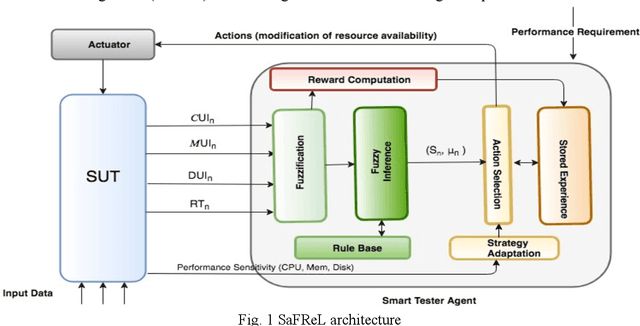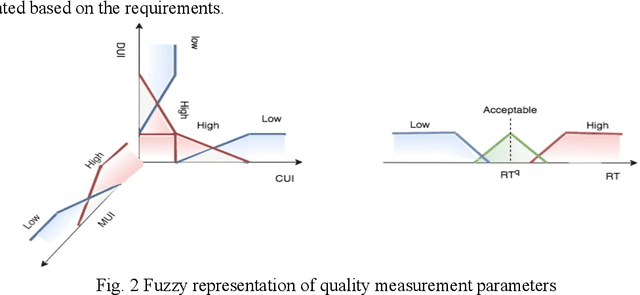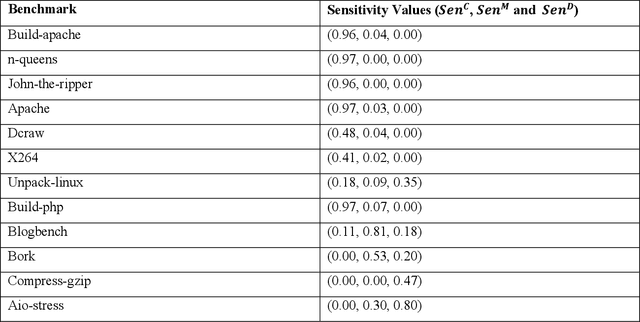An Autonomous Performance Testing Framework using Self-Adaptive Fuzzy Reinforcement Learning
Paper and Code
Aug 19, 2019



Test automation can result in reduction in cost and human effort. If the optimal policy, the course of actions taken, for the intended objective in a testing process could be learnt by the testing system (e.g., a smart tester agent), then it could be reused in similar situations, thus leading to higher efficiency, i.e., less computational time. Automating stress testing to find performance breaking points remains a challenge for complex software systems. Common approaches are mainly based on source code or system model analysis or use-case based techniques. However, source code or system models might not be available at testing time. In this paper, we propose a self-adaptive fuzzy reinforcement learning-based performance (stress) testing framework (SaFReL) that enables the tester agent to learn the optimal policy for generating stress test cases leading to performance breaking point without access to performance model of the system under test. SaFReL learns the optimal policy through an initial learning, then reuses it during a transfer learning phase, while keeping the learning running in the long-term. Through multiple experiments on a simulated environment, we demonstrate that our approach generates the stress test cases for different programs efficiently and adaptively without access to performance models.
 Add to Chrome
Add to Chrome Add to Firefox
Add to Firefox Add to Edge
Add to Edge